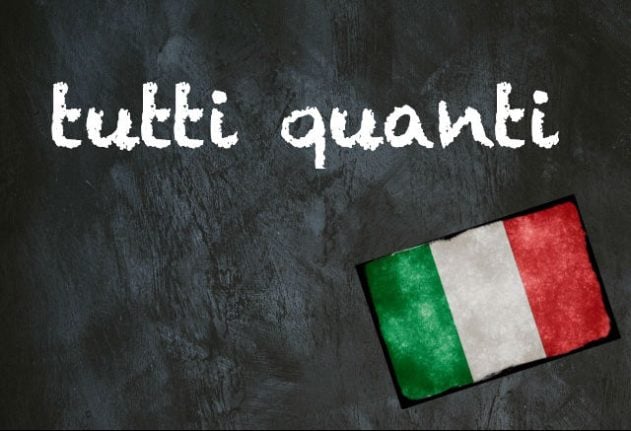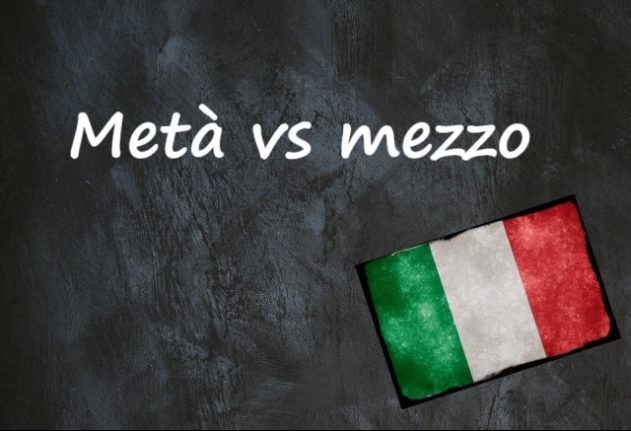Everyone, everybody, all of you, all and sundry, every last one, every single one, the whole darn lot of you: when you’re talking to a group and every person in it, tutti quanti (pronounced “toot-ee kwan-tee”) is the phrase to use.
It’s made up of tutti, the word for ‘all’ or ‘everyone’, plus quanti – which usually means ‘how many’ or ‘as many’, but in this case just think of it as adding emphasis to ‘everyone’.
It’s the difference between saying ‘everyone’ (tutti) and ‘every single one’ (tutti quanti).
Tutti quanti la pensano come me.
Absolutely everyone sees it like I do.
Forza, tutti quanti, svegliatevi.
Come on, wake up, the lot of you.
Tutti quanti is the masculine plural form of the phrase, commonly used to refer to several people (or things) at once.
But you can also make it singular (tutto quanto) if you want to talk about ‘the whole thing’, and feminine if the people or nouns you mean are feminine (tutta quanta, tutte quante).
Mettete a posto tutto quanto.
Tidy the whole lot up.
Ho letto tutte quante le sue poesie.
I read every last one of her poems.
S’è bevuta tutta quanta la bottiglia.
The entire bottle got drunk.
As you can tell, there isn’t a real difference in meaning between ‘everybody’ and ‘absolutely everybody’, tutti and tutti quanti – it’s more a question of tone.
That’s why the lyric ‘Everybody Wants To Be A Cat’ from Disney’s Aristocats (or ‘Gli Aristogatti’ in Italian) was translated as ‘Tutti quanti voglion’ fare jazz’ (‘Everybody wants to play jazz’): it means the same thing, it just sounds better.
Do you have an Italian phrase you’d like us to feature? If so, please email us with your suggestion.
Did you know you can get all our Italian words and expressions of the day on our new app as soon as we publish them? It takes a few seconds to download the app at the Apple or Android store, then you can select “Italian Word of the Day” in your Notification options via the “User” button.



 Please whitelist us to continue reading.
Please whitelist us to continue reading.
Member comments